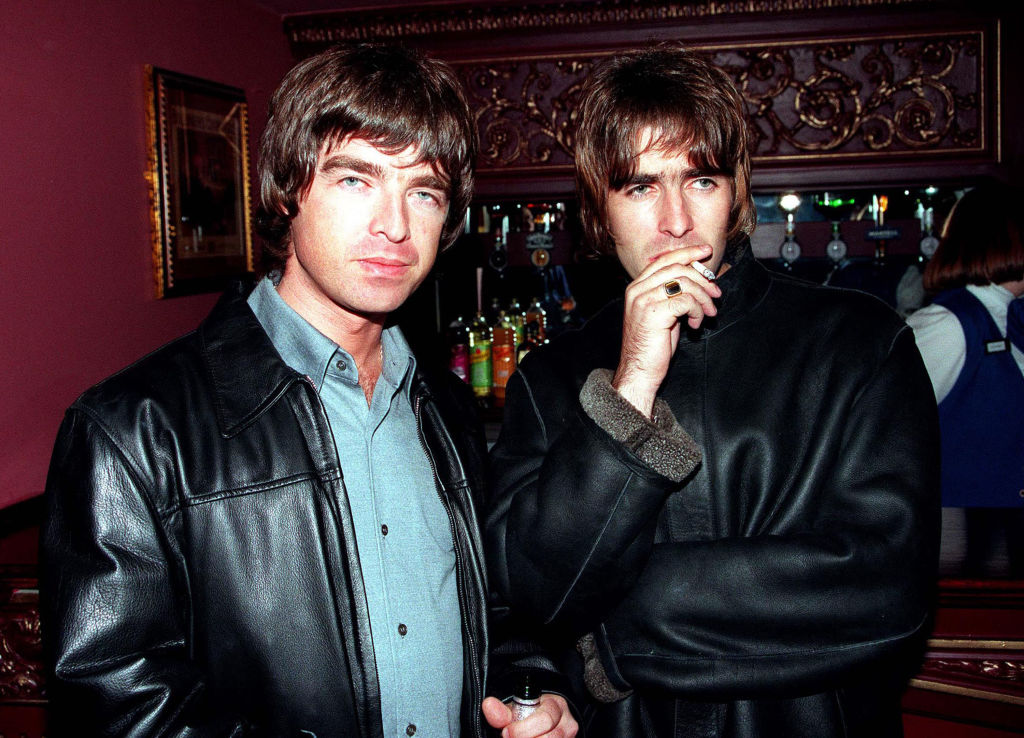Oasis is back. After years of feuding, Liam and Noel Gallagher have finally buried the hatchet to reclaim the Britpop throne they abruptly abandoned in 2009. Following days of not-so-cryptic teasers on Instagram and X — and Liam’s pointed dedication of “Half The World Away” to his brother at Reading Festival — Oasis has this morning officially announced a 14-concert reunion tour for summer 2025.
For Oasis fans — myself included — this is welcome news. Despite 15 years in the wilderness, the band’s popularity has arguably grown. Noel claims that the band continues to sell as many records as when they were together. “Wonderwall” alone has over 2 billion streams on Spotify — a primarily post-breakup platform. No doubt we will see a ticket war. Starved centrist dad Britpoppers and a TikTok-addled Gen Z will battle for a chance to witness the nostalgia of the Cool Britannia icon made flesh.
Yet, as with the notable coinciding return of a new New Labour, Oasis’s comeback tour will not usher in the dawn of Cool Britannia 2.0. Quite the opposite: the ghost of “Things Can Only Get Better” has been thoroughly exorcised. In fact, Oasis’s reunion has been announced on the exact same day Prime Minister Keir Starmer utters the literal phrase: “Things will get worse before they get better.”
The Britain to which Oasis returns is a far cry from the optimistic, buoyant nation of the Nineties. Back then, the country was infused with a self-confident swagger epitomised by Britpop and Tony Blair’s dynamism. Rather than providing cultural rejuvenation, this will merely be a social media event. The Sunday Times is already crowing that this “will clearly be the event of the summer”. However, such sentiments are a pang of nostalgia for a time when prestige acts were forged by legacy media, not recommended by algorithms. In an atomised media and cultural environment, where cultural production and consumption are unmoored from any coherent, modern, singular sense of what “Britishness” truly is, Brits are simply searching for something that feels like home
The late Marxist philosopher and pop culture theorist Mark Fisher foresaw this age. In his 2014 essay “The Slow Cancellation of the Future”, he wrote that “the period from roughly 2003 to the present will be recognised — not in the far distant future, but very soon — as the worst period for (popular) culture since the 1950s”. Although art has always been haunted by what came before, many modern social pressures are conspiring to limit creativity: a precarious job market, ever-more-expensive living costs, cultural and technological overstimulation, and a music business that tends towards monopoly instead of independent variety.
Yet the celebration of Oasis’s revival further signals that we have reached a cultural impasse; we are not only haunted by the past, but cannot imagine better futures. Market incentives drive culture-makers to reheat what has been tried and tested. Just as Labour and the Conservatives hark back to Blair and Thatcher to spark emotion or steal ideas, the notion that Oasis’s tour might be the event of 2025 reflects what Fredric Jameson calls “the imprisonment in the past”. In his work Postmodernism and Consumer Society, Jameson argues that “in a world in which stylistic innovation is no longer possible, all that is left is to imitate dead styles.”
Britain is not alone in its yearning for the past. In America, Hollywood has become unable to produce anything that is not a sequel, reboot, remake or biopic of a past figure. A recent study by EntTelligence, a cinema market research platform, found that of the top 60 highest grossing films at the box office, only five could be classified as original. Worse still, there are another 135 sequels in production. Internet pundits were quick to spot that the recent announcement of Shrek 5 coincided with the return of Labour — with the previous four films made under Blair and Brown.
The word nostalgia is etymologically rooted in the Greek nostos meaning “returning home” and algos meaning “pain”. The Nostalgia Industrial Complex, embodied here by the ageing Gallaghers, is merely a product of our collective inability to envision a future for Britain that feels as cohesive and inspiring as the past once did — and it’s painful. Until we actively confront our lack of a bold, inspiring story for our national future, we will continue to be haunted by our dreams of the past. Noel and Liam may no longer be looking back in anger — but we are a long way from looking forward with vigour.











Join the discussion
Join like minded readers that support our journalism by becoming a paid subscriber
To join the discussion in the comments, become a paid subscriber.
Join like minded readers that support our journalism, read unlimited articles and enjoy other subscriber-only benefits.
Subscribe